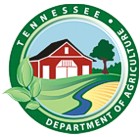 Nashville, TN – Four of the most dreaded words in agriculture are Hoof and Mouth Disease, which can be devastating to livestock producers and wreak havoc on the farm economy. In conjunction with June Dairy Month, Tennessee Governor Bill Haslam has signed an agreement that partners Tennessee with eight other states to protect the dairy industry in the event of an HMD outbreak.
Nashville, TN – Four of the most dreaded words in agriculture are Hoof and Mouth Disease, which can be devastating to livestock producers and wreak havoc on the farm economy. In conjunction with June Dairy Month, Tennessee Governor Bill Haslam has signed an agreement that partners Tennessee with eight other states to protect the dairy industry in the event of an HMD outbreak.
Known as the Secure Milk Supply Plan, the agreement sets standards by which milk producers, haulers and processors would interact with animal health authorities to reduce the risk of spreading HMD during an outbreak.
The regional effort is part of the national initiative to develop biosecurity measures that would allow for the movement of milk without undermining HMD control and eradication efforts.“Livestock and livestock products are the largest generator of revenue for Tennessee farmers, so an HMD outbreak here would be especially crippling to our ag economy,” Tennessee Department of Agriculture state veterinarian Charles Hatcher said. “This plan allows us to take appropriate disease protection measures during an outbreak while minimizing the impact to producers and processors so that the dairy industry can continue to function.”
HMD is a highly contagious disease that affects cloven-hooved animals, but not humans. The virus causes fever, followed by painful blisters on the animal’s mouth and hooves, and can cause extreme weight loss, lameness and reduced milk production. Although the disease has not been seen in the U.S. since 1929, outbreaks occur every year in other countries and the disease could easily be introduced through international trade.
In the event of a HMD outbreak, the movement of animals, animal products such as milk, people and vehicles would be restricted until the extent of the outbreak is known. Under the plan, non-affected dairies that meet certain qualifications would be allowed to ship milk in-state or to any participating state.
“We want to make sure the cure is not worse than the disease,” Hatcher said. “Education of and participation by dairy producers and processors is critical to the plan’s success.”
Some of the biosecurity requirements for dairy producers include recording vehicles and visitors, milk tank washing and disinfection, use of protective gear and other measures at pick-up and delivery. The most important part of the SMS plan is biosecurity measures surrounding the truck picking up milk from an approved participating dairy.
TDA has conducted regional workshops in Murfreesboro and Madisonville for dairy producers to demonstrate biosecurity procedures.
For more information on the Secure Milk Supply Plan and other educational opportunities, contact the State Veterinarian’s Office at 615.837.5120.


